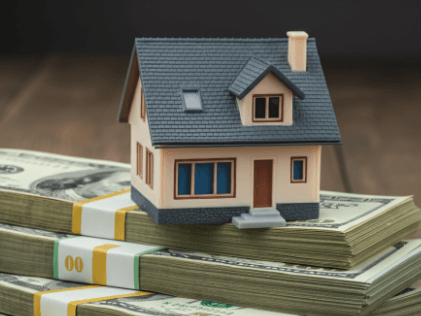When navigating the complex world of real estate, one frequently asked question is: “Why would anyone buy a leasehold property?” Given the potential restrictions and finite nature of leasehold agreements, this topic often stirs debate among prospective buyers and seasoned investors alike. However, there are several compelling reasons why leasehold properties continue to attract a dedicated following. In this blog, we will delve into the advantages and considerations that might make you ponder, “Why would anyone buy a leasehold property?” and perhaps even convince you to explore this route for your next real estate investment.
Real estate investors Steve Daria and Joleigh have long seen the value in leasehold properties. They highlight that these properties frequently entail a lower initial expense compared to freehold choices, rendering them more attainable for first-time purchasers or individuals with constrained budgets. Additionally, leasehold properties can offer desirable locations and amenities that might otherwise be unattainable.
Understanding Leasehold Properties
Before exploring the reason why would anyone buy a leasehold property, it’s essential to understand that a leasehold property is a form of real estate ownership where an individual or entity holds the rights to a building or structure erected on land that is leased from a freeholder or landlord.
Unlike freehold properties, where ownership encompasses both the land and the buildings indefinitely, leasehold properties only grant ownership rights to the physical structures for a predetermined period.

This lease period can vary widely, commonly ranging from several decades to over a century, depending on the terms negotiated between the leaseholder and the freeholder.
Throughout the lease term, the leaseholder is responsible for adhering to the conditions stipulated in the lease agreement, which typically include payment of ground rent and compliance with any restrictions or covenants outlined by the freeholder.
Differences Between Freehold and Leasehold
Freehold ownership provides indefinite rights to both land and property, while leasehold ownership is temporary and subject to the terms of the lease settlement with the freeholder.
Examples of Common Leaseholds
- Apartments in urban areas
- Commercial properties in city centers
- Holiday homes within resort complexes
Get An Offer Today, Sell In A Matter Of Days
Why Would Anyone Buy a Leasehold Property?
Explore the reason why would anyone buy a leasehold property.
Affordability
Leasehold properties present a more affordable entry point into the property market compared to freehold properties, particularly in urban areas where real estate values are steep.
The lower initial cost allows first-time buyers or investors with limited capital to acquire property and start building equity.
This affordability factor extends beyond the purchase price to include ongoing costs like maintenance and property taxes, which can be more manageable compared to freehold properties.
Location, Location, Location
Prime urban locations often feature leasehold properties that offer proximity to key amenities, employment centers, and cultural attractions.
These locations are highly desirable for their convenience and connectivity, making them attractive to buyers seeking a vibrant urban lifestyle or strategic investment opportunities.
Purchasing a leasehold property in such areas provides access to a coveted lifestyle without the exorbitant costs associated with owning freehold property.
Potential for Capital Growth
Despite the lease’s finite duration, leasehold properties located in high-demand areas have demonstrated resilience in terms of capital appreciation over time.
The scarcity of available land in urban centers coupled with sustained population growth often drives property values upward, benefiting leasehold owners who capitalize on these market dynamics.
Investors especially find appeal in leasehold properties due to their potential to generate substantial returns on investment through appreciation.
Strategic acquisition of leasehold properties in emerging neighborhoods or areas undergoing revitalization can yield significant long-term gains as the surrounding infrastructure develops and demand for urban living continues to rise.
Key Considerations Before You Buy
Explore the key considerations before you buy a leasehold property to make informed decisions.
Lease Length
The remaining length of the lease is critical.
Aim for leases with 80 years or more to minimize the need for costly lease extensions and maintain property value.
Ground Rent and Service Charges
Understand all recurring costs associated with the lease, including ground rent, service charges, and maintenance fees.
These ongoing expenses can impact your overall investment returns and cash flow.
Lease Restrictions
Leasehold properties often come with restrictions imposed by the freeholder or outlined in the lease agreement.
These may include limitations on subletting, pet ownership, or property alterations.
Ensure these restrictions align with your intended use and future plans for the property to avoid legal complications.
Strategies for Successful Leasehold Investment
Discover the strategies for a successful leasehold investment.
Negotiate Lease Terms
During the property purchase process, negotiate for favorable lease terms, including lease extension options.
Longer leases are generally more attractive to future buyers and lenders, enhancing the property’s marketability and value.

Budget for Additional Costs
Factor in all associated costs, such as ground rent and service charges, when calculating your budget for purchasing and owning a leasehold property.
Understanding these costs upfront will help you manage your finances effectively.
Legal Consultation
Engage a solicitor experienced in leasehold transactions to review the lease agreement thoroughly.
They can identify any possible pitfalls or hidden clauses that may impact your ownership rights or financial obligations.
Tips for Managing Leasehold Property
Explore the tips for managing leasehold property.
Regularly Review Lease Conditions
Stay informed about lease conditions and any changes in legislation affecting leaseholds.
These proactive steps will help you avoid penalties or legal disputes related to non-compliance with lease terms.
Maintain Good Relations with the Freeholder
Establishing a cooperative relationship with the freeholder can facilitate smoother lease negotiations and permissions for property modifications or lease extensions as needed.
Plan for Lease Renewal
Planning ahead for lease renewal is crucial, especially for properties with shorter lease terms.
As leases approach expiration, the property’s value can decline significantly, impacting its marketability and resale potential.
Begin the renewal process early to allow ample time for negotiations with the freeholder and legal preparations.
Conclusion
Investing in a leasehold property offers unique opportunities and challenges that require careful consideration of lease terms, costs, and potential restrictions. By understanding these factors and implementing strategic approaches to lease negotiation and management, buyers can make choices that align with their financial and property investment goals.
**NOTICE: Please note that the content presented in this post is intended solely for informational and educational purposes. It should not be construed as legal or financial advice or relied upon as a replacement for consultation with a qualified attorney or CPA. For specific guidance on legal or financial matters, readers are encouraged to seek professional assistance from an attorney, CPA, or other appropriate professional regarding the subject matter.

